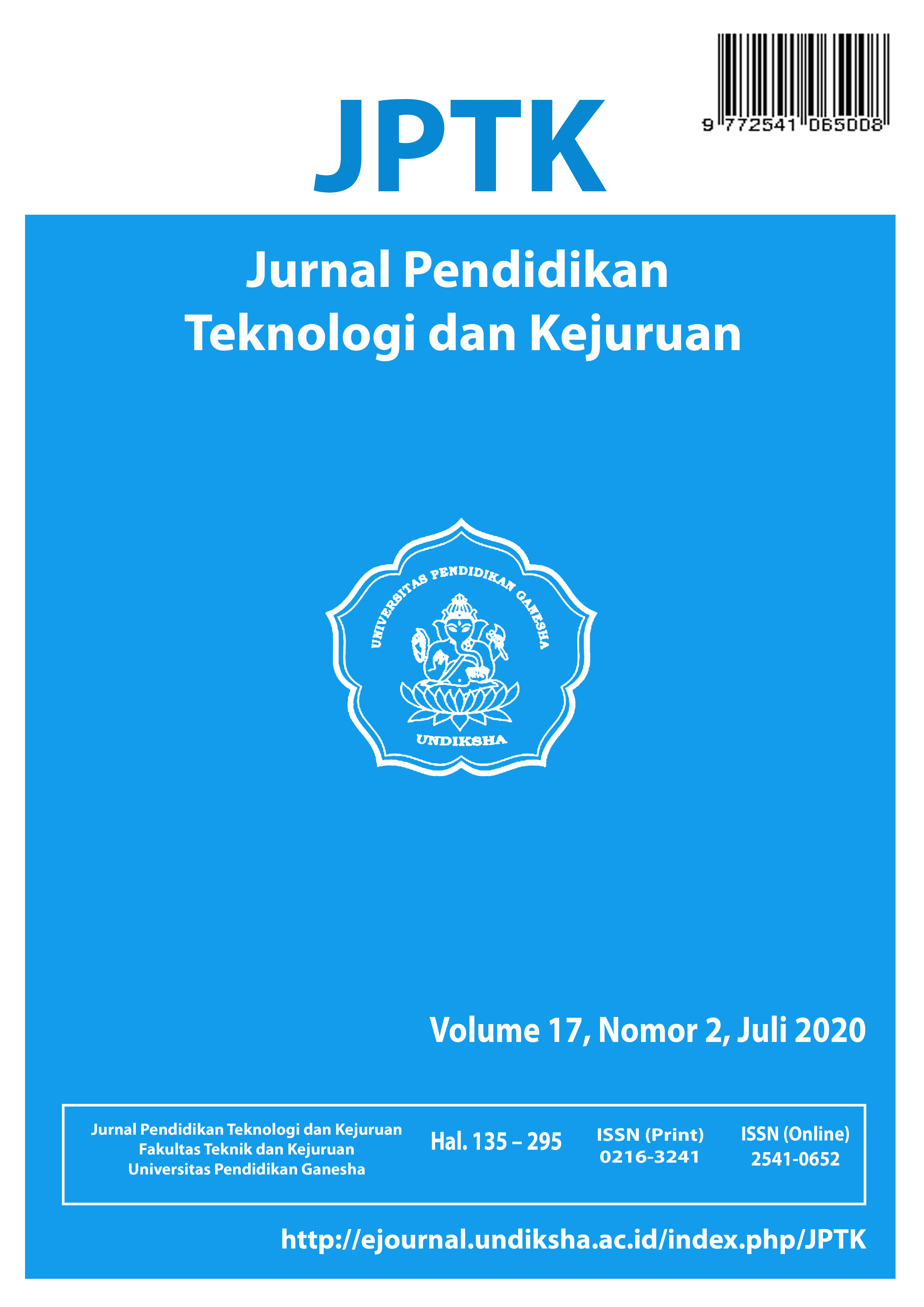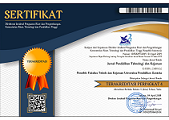PENGEMBANGAN TRAINER KIT MIKROKONTROLER ATMEGA16 SEBAGAI MEDIA PEMBELAJARAN UNTUK SEKOLAH MENENGAH KEJURUAN
DOI:
https://doi.org/10.23887/jptk-undiksha.v17i2.24366Abstract
Lemahnya daya tarik siswa pada mata pelajaran mikrokontroler yang menyebabkan penurunan kualitas nilai dari hasil belajar yang diperoleh. Tujuan pengembangan trainer ini untuk mengetahui tingkat kelayakan trainer mikrokontroler serta mengukur tingkat efektivitas trainer pada aspek proses pembelajaran dan hasil peningkatan belajar pada mata pelajaran mikrokontroler. Research and Development (R&D) model ADDIE digunakan dalam penelitian ini dengan sampel 22 siswa mengggunakan teknik purposive random sampling. Analisis data deskriptif kuantitatif digunakan dalam penelitian ini. Hasil dari penelitian ini mengungkapkan bahwa hasil dari validasi media dinyatakan sangat layak dengan skor X= 81, x= 52,5 dan SBx= 10,5 sehingga skor akhir diperoleh 81>63. (2) validasi materi dengan kategori sangat layak dengan skor X= 52,5, x= 32,5 dan SBx= 6,5 sehingga skor akhir diperoleh 50,45>48. (3) hasil penilaian angket pengguna media trainer mendapatkan hasil sangat layak dengan perolehan X= 72, = 47,5 dan SBx= 9,5 sehingga skor akhir diperoleh 72>57.Downloads
Published
2020-07-31
Issue
Section
JPTK
License
Authors who publish with the JPTK agree to the following terms:- Authors retain copyright and grant the journal the right of first publication with the work simultaneously licensed under a Creative Commons Attribution License (CC BY-SA 4.0) that allows others to share the work with an acknowledgment of the work's authorship and initial publication in this journal
- Authors are able to enter into separate, additional contractual arrangements for the non-exclusive distribution of the journal's published version of the work (e.g., post it to an institutional repository or publish it in a book), with an acknowledgment of its initial publication in this journal.
- Authors are permitted and encouraged to post their work online (e.g., in institutional repositories or on their website) prior to and during the submission process, as it can lead to productive exchanges, as well as earlier and greater citation of published work. (See The Effect of Open Access)












